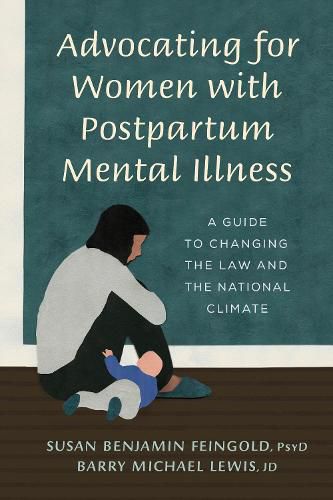Readings Newsletter
Become a Readings Member to make your shopping experience even easier.
Sign in or sign up for free!
You’re not far away from qualifying for FREE standard shipping within Australia
You’ve qualified for FREE standard shipping within Australia
The cart is loading…






Advocating for Women with Postpartum Psychosis takes the reader into the world of one of the most misunderstood mental illnesses. Affecting 1 to 2 out of 1,000 childbearing women a year in the United States, postpartum psychosis creates hallucinations and delusions, which, if untreated, can lead to infanticide and subsequently imprisonment or death for the mother. While other parts in the world, particularly the United Kingdom have more sympathetic laws, in the United States, women with postpartum psychosis are often stigmatized as baby killers , and face the ultimate penalty.
Through this book, though, authors Feingold and Lewis humanize the mother’s experience to promote understanding and compassion. Beginning with an overview of the mental health and legal facets surrounding postpartum psychosis, the authors then provide vital resources and tools for mental health practitioners and legal professionals to enact change in their practices and communities.
Complete with case studies and the authors’ experiences in changing the law in their own state of Illinois, this book is a necessary resource for furthering dialogue and action around maternal mental illness.
$9.00 standard shipping within Australia
FREE standard shipping within Australia for orders over $100.00
Express & International shipping calculated at checkout
Stock availability can be subject to change without notice. We recommend calling the shop or contacting our online team to check availability of low stock items. Please see our Shopping Online page for more details.
Advocating for Women with Postpartum Psychosis takes the reader into the world of one of the most misunderstood mental illnesses. Affecting 1 to 2 out of 1,000 childbearing women a year in the United States, postpartum psychosis creates hallucinations and delusions, which, if untreated, can lead to infanticide and subsequently imprisonment or death for the mother. While other parts in the world, particularly the United Kingdom have more sympathetic laws, in the United States, women with postpartum psychosis are often stigmatized as baby killers , and face the ultimate penalty.
Through this book, though, authors Feingold and Lewis humanize the mother’s experience to promote understanding and compassion. Beginning with an overview of the mental health and legal facets surrounding postpartum psychosis, the authors then provide vital resources and tools for mental health practitioners and legal professionals to enact change in their practices and communities.
Complete with case studies and the authors’ experiences in changing the law in their own state of Illinois, this book is a necessary resource for furthering dialogue and action around maternal mental illness.